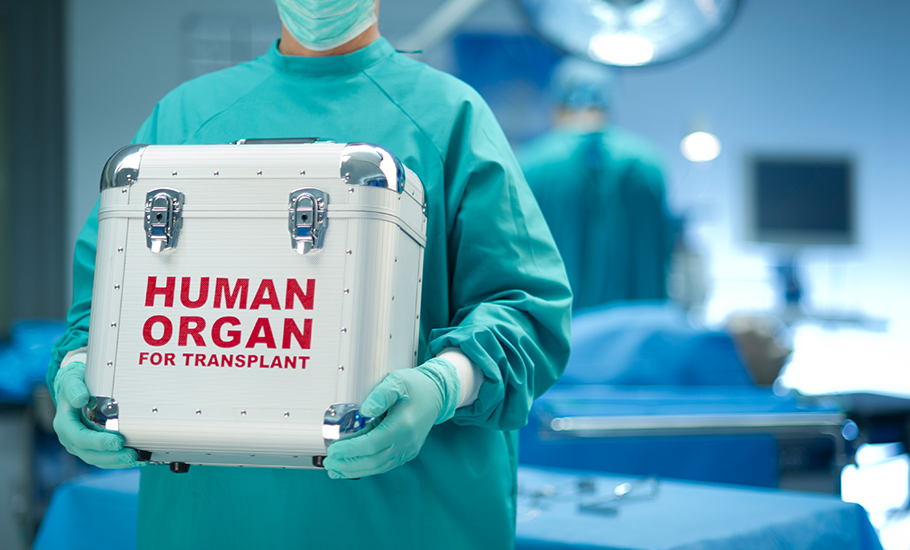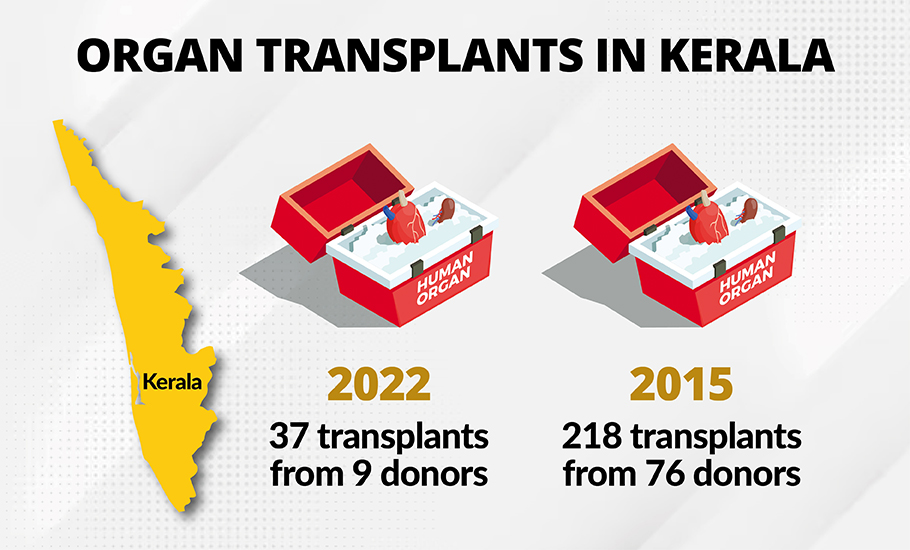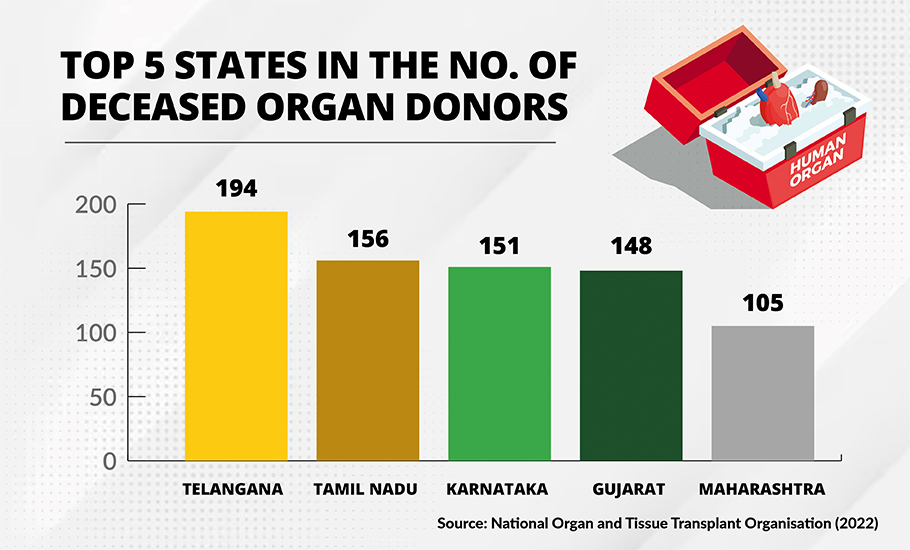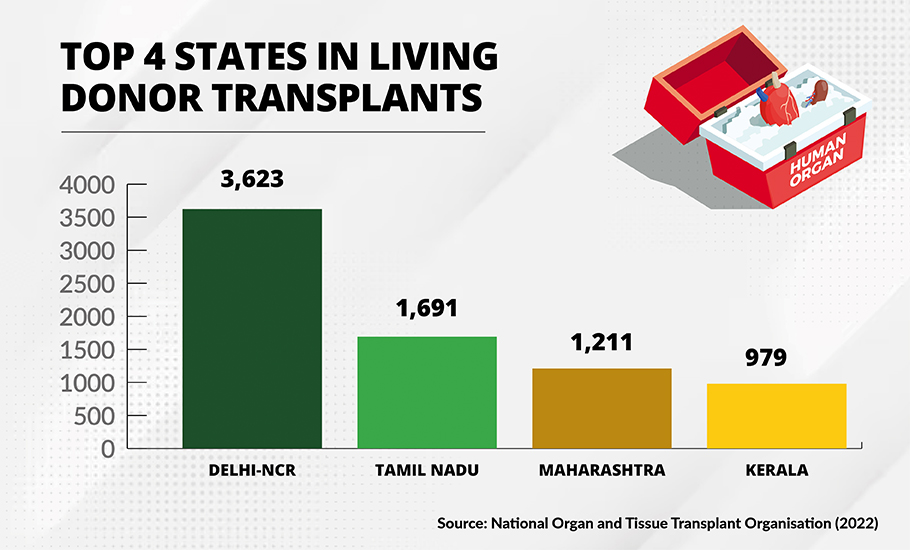
- Home
- India
- World
- Premium
- THE FEDERAL SPECIAL
- Analysis
- States
- Perspective
- Videos
- Sports
- Education
- Entertainment
- Elections
- Features
- Health
- Business
- Series
- Bishnoi's Men
- NEET TANGLE
- Economy Series
- Earth Day
- Kashmir’s Frozen Turbulence
- India@75
- The legend of Ramjanmabhoomi
- Liberalisation@30
- How to tame a dragon
- Celebrating biodiversity
- Farm Matters
- 50 days of solitude
- Bringing Migrants Home
- Budget 2020
- Jharkhand Votes
- The Federal Investigates
- The Federal Impact
- Vanishing Sand
- Gandhi @ 150
- Andhra Today
- Field report
- Operation Gulmarg
- Pandemic @1 Mn in India
- The Federal Year-End
- The Zero Year
- Science
- Brand studio
- Newsletter
- Elections 2024
- Events
- Home
- IndiaIndia
- World
- Analysis
- StatesStates
- PerspectivePerspective
- VideosVideos
- Sports
- Education
- Entertainment
- ElectionsElections
- Features
- Health
- BusinessBusiness
- Premium
- Loading...
Premium - Events

Why Kerala is going slow on accepting organs from brain dead people

Sitting in the waiting area outside the Intensive Care Unit at Lisie Hospital in Ernakulam, Ramesh, a 44-year-old daily-wage labourer from a Tamil Nadu village near the Kerala border in Karakkonam, switched between twiddling his thumbs and shaking his legs frantically. His wife Vijila and their 15-year-old son Rubin were inside the ICU. Rubin had undergone a liver transplant, with his mother...
Sitting in the waiting area outside the Intensive Care Unit at Lisie Hospital in Ernakulam, Ramesh, a 44-year-old daily-wage labourer from a Tamil Nadu village near the Kerala border in Karakkonam, switched between twiddling his thumbs and shaking his legs frantically. His wife Vijila and their 15-year-old son Rubin were inside the ICU. Rubin had undergone a liver transplant, with his mother as the donor.
While both mother and son were stable post the surgery, Ramesh was restless worrying not just about the hospital expenses but also about another transplant surgery that his son needed, for which he was himself donating his kidney.
“Some 10 years back, Rubin was diagnosed with kidney stones and had been taking medicines. But one day he started vomiting. Tests showed his liver was malfunctioning. Soon we found that both his kidneys too had been damaged and multiple organ transplant was the only option for him to survive,” Ramesh told The Federal.
He had been undergoing dialysis for some time. It would take another two months for the kidney transplant, added Ramesh, his voice echoing both helplessness and hope.
Ramesh has no clue what the entire treatment would cost him. Though his neighbours helped him collect the money through crowdfunding, Ramesh is still uncertain about the family’s financial future.

With all three of them requiring post-operative care, Ramesh is helplessly worried over how they will manage to survive. Ramesh has another son who is a student of Class 8.
The family could have been spared a huge part of the trouble had they been able to receive organs from a deceased donor.
****
Annu Sohan, a 5-year-old kid from Kannur, has a malfunctioning kidney by birth. She lives with her grandparents in Kochi as her parents work abroad. For her too, transplant is the only way to survive, but she has to wait till she is grown up enough to undergo the procedure.
“We are consulting in St John’s Medical College in Bengaluru, as it is one of the best institutions for paediatric organ transplant. She is getting regular dialysis at home only, and one of her parents will be the donor. It would be a dream come true if she gets a deceased donor when she is ready for the transplant,” Ganesh, her uncle and guardian, told The Federal.
“The issue is that most hospitals insist that only close relatives can be donors to avoid complications,” added Ganesh.

Data from Kerala State Organ and Tissue Transplant Organization (KSOTTO) shows that as of March 11, there were 3,215 organ transplant candidates registered as recipients for deceased transplant, of whom 2,281 required kidneys. As many as 782 patients require a liver, 65 need heart, 13 pancreas, 12 hands, 3 small intestines, and 59 require multiple organs. (Some of them might not be active anymore since they may no longer be alive or would have opted for living donors.)
On the other hand, the number of deceased organ transplants is too low in Kerala, as per the same database. Only 37 major organ transplants had taken place in the year 2022, from 9 donors. In 2015, there were 76 donors and 218 transplants indicating a sharp decline in the number of deceased organ donations in the state.
As per the 2022 data of National Organ and Tissue Transplant Organisation, Kerala does not feature in the top five states in the number of deceased organ donors. Telangana is on the top of the list with 194 donors, followed by Tamil Nādu (156), Karnataka (151), Gujarat (148) and Maharashtra (105). As far as the living donor transplants are concerned, Kerala is the fourth place with 979 transplants where Delhi-NCR tops the list with 3,623 transplants followed by Tamil Nadu (1,691) and Maharashtra (1,211).

“The decline in the number of deceased donors in Kerala has many reasons, with a 2017 litigation by a Kollam-based doctor being the main one. Dr Ganapathy, who has been a medical practitioner, filed a public interest litigation in the high court of Kerala accusing malpractices in the brain death certification in which the court had sought clarifications from the government,” said Dr Noble Garacious, nodal officer for Kerala network of organ sharing, Mrithasanjivani.
“The government in turn, implemented a strict set of guidelines for the declaration of brain death in response to the court’s order that it be a little more watchful. This includes video recording of the certification process and a mandatory presence of a government doctor during the same. After this order, many hospitals took their foot off the pedal as these conditions were not practical in many ways,” added Dr Noble.
Dr Ganapathy S had argued in his petition that the doctors declare a patient brain dead and then persuade the family to donate organs to facilitate organ transplantation even though he/she may not be brain dead.
“I had a personal experience with a hospital where I underwent a heart surgery. The doctors there wanted me to sign an agreement for organ donation in case anything happens to me. It was my daughter who stopped me from doing so, saying that they might kill you as the organs are worth crores of rupees. Initially, I did not believe her and then I researched on the matter and found it correct. That’s why I approached the high court with the PIL,” Dr Ganapathy told The Federal.
He told the court that the tests carried out for confirming brain death were inadequate, an argument that prompted the state government to formulate a stringent set of rules in this regard.
“The observations and directive of the court was reasonable but not enough to contain the malpractices. So, I have approached the Supreme Court and the case will come up before the CJI on March 29,” Dr Ganapathy added.
“It would not be that practical for private hospitals to constitute a committee of doctors including a government doctor for each and every case, yet some of the hospitals did try to comply, but the same litigant took them to the court again, alleging corruption,” says Dr Noble.
“I do not know Dr Ganapathy’s motive, but one thing is clear that it has had a very negative impact on the deceased donor organ transplant in the state. This is the main reason coupled with a somewhat false narrative propagated by a Malayalam film, behind the decline in cadaver transplants,” shared Dr Noble.
Joseph, a 2018 Malayalam film written by Shahi Kabeer and directed by M Padmakumar, was cited as another factor in raising people’s suspicions about deceased organ transplants and the existence of an organ harvesting mafia.

“One must understand that there are two kinds of organ donation: live and deceased. It’s true that some corruption by middlemen could occur when live donors are involved. That’s why hospitals generally do not advocate for live donors unless they are a close relative. However, in the movie, this deceased donation is portrayed as corrupt. Planning murders and removing organs is just medically and surgically impractical. And it’s not as simple as just having one doctor declare someone brain dead.” says Dr Jinesh PS, who is an Australia-based forensic surgeon.
But Joseph, which was critically acclaimed and fetched the best actor award for Joju Joseph in 2019, potential organ donors are killed in staged accidents, to harvest their organs for patients from foreign countries while the poorest recipients on the list are given phoney surgeries.
“It was purely a work of fiction, and has nothing to do with real-life incidents,” says Shahi Kabeer, the screenwriter of the film who also happens to be a police officer in real life.
“It was a traumatic time to be accused of wrong portrayal of organ donation. I had to undergo therapy to recover from it. I have made it clear on many occasions too and tried my best to convince the doctors’ organisations. In fact, my service as a policeman did the trick, I think. People might have taken it for real incidents,” Shahi said.
“It was not this film only,” says Dr Jinesh. “There is a perception that private hospitals would subject vulnerable patients to unnecessary surgeries and harvest their organs. Writer – director Sreenivasan’s rants on this also have influenced many.”
Dr Noble too endorses this view, adding that it is not practically or medically possible to perform such surgeries as shown in films. “We could not find fault with the hospitals when the government takes a defensive position. In fact, there is no aggressive campaign to promote deceased organ transplant at all,” says Dr Noble.
“Now, with the numbers dropping so sharply, we have given our take on it to the government, that these stringent rules which are impractical to follow should be relaxed. Hope that the department acts on it positively,” adds the doctor.
“The procedure for the deceased donor organ transplant is very simple,” says Sharanya S, the project manager, KSOTTO. “For kidney, the patient should be on dialysis, and for liver MELD score is considered. For any other organs, the surgeon’s certificate is required, which is hassle-free in comparison with the living donor transplant which needs approval of the authorisation committee,” clarified Sharanya.
Akhil Vivekanandan has another story to tell. His father Vivekanandan C met with an accident in January 2022 and was comatose for a couple of days in Baby Memorial Hospital, Kozhikode where he was declared brain dead on January 9. Akhil and his mother Shaleena did not hesitate to sign up for deceased organ transplant, which the victim had already been ready for.
“We had no doubts whatsoever. My aunt worked there in the same hospital and we knew they did everything they could to save my dad. So, if his organs could give life to some other people, why should we object, asks Akhil who works as a technician in Bengaluru.
(Some names and locations have been changed to protect the identity of the patients and donors.)
